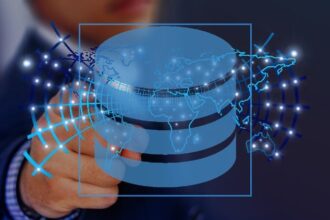What
You’ll Learn
You’ll Learn
- PRACTICE TEST 1
- PRACTICE TEST 2
- PRACTICE TEST 3
- PRACTICE TEST 4
Requirements
- NO PREQUISITES
Description
The Python Interview Test Quiz for Data Science is designed to evaluate and strengthen your understanding of Python programming within the context of data science. This course is ideal for individuals preparing for data science interviews or assessments, as well as for those looking to deepen their Python knowledge specifically for data science applications. The quiz covers a wide range of topics, ensuring that participants are well-prepared to tackle Python-related questions in a data science interview setting.
Course Objectives:
By the end of this course, you will be able to:
-
Demonstrate a solid understanding of Python programming concepts and their application in data science.
-
Solve complex problems involving data manipulation, data analysis, and data visualization using Python.
-
Utilize Python libraries such as NumPy, Pandas, Matplotlib, and Scikit-Learn effectively to perform various data science tasks.
-
Understand and implement data preprocessing techniques, feature engineering, and machine learning models in Python.
-
Prepare confidently for technical interviews and coding assessments focusing on Python for data science.
Topics Covered:
-
Python Basics for Data Science:
-
Variables, Data Types, and Operators
-
Control Structures (if statements, loops)
-
Functions and Lambda Expressions
-
List Comprehensions and Generators
-
-
Data Manipulation with Pandas:
-
DataFrames and Series
-
Reading and Writing Data (CSV, Excel, SQL, JSON)
-
Data Cleaning and Preparation
-
Grouping, Merging, and Joining Data
-
Handling Missing Data
-
-
Numerical Computation with NumPy:
-
NumPy Arrays and Operations
-
Mathematical and Statistical Functions
-
Broadcasting and Vectorization
-
Indexing, Slicing, and Reshaping Arrays
-
-
Data Visualization with Matplotlib and Seaborn:
-
Creating Basic Plots (Line, Bar, Histogram, Scatter)
-
Customizing Plots (Titles, Labels, Legends)
-
Advanced Plots (Heatmaps, Pair Plots, Box Plots)
-
Styling and Themes
-
-
Machine Learning with Scikit-Learn:
-
Supervised Learning (Regression, Classification)
-
Unsupervised Learning (Clustering, Dimensionality Reduction)
-
Model Evaluation and Selection
-
Hyperparameter Tuning and Cross-Validation
-
-
Data Preprocessing and Feature Engineering:
-
Data Scaling and Normalization
-
Encoding Categorical Variables
-
Handling Imbalanced Datasets
-
Feature Selection and Extraction
-
-
Advanced Python Topics for Data Science:
-
Working with Large Datasets
-
Efficient Data Processing with Dask
-
Using Python in Big Data Ecosystems (PySpark)
-
Introduction to Deep Learning Frameworks (TensorFlow, PyTorch)
-
-
Interview and Test Preparation:
-
Common Python Data Science Interview Questions
-
Hands-On Coding Challenges
-
Mock Interviews and Timed Quizzes
-
Tips for Technical Interviews and Problem-Solving Strategies
-
Course Format:
-
Interactive Quizzes: Test your knowledge with quizzes at the end of each module.
-
Hands-On Coding Exercises: Practice coding with real-world datasets and scenarios.
-
Timed Assessments: Simulate interview conditions with timed tests and challenges.
-
Discussion Forums: Engage with peers and instructors to discuss concepts and solutions.
-
Mock Interviews: Participate in mock interviews to gain confidence and receive feedback.
Who Should Enroll:
-
Aspiring data scientists preparing for technical interviews or coding assessments.
-
Data science professionals looking to enhance their Python skills for data analysis and machine learning.
-
Students and graduates who want to build a strong foundation in Python programming for data science.
Prerequisites:
-
Basic understanding of Python programming.
-
Familiarity with fundamental data science concepts is recommended but not required.
Who this course is for:
- PYTHON CANDIDATES






